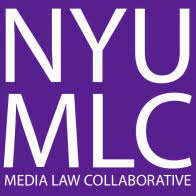Media Law in New York State encompasses many areas, from issues concerning artists’ rights and broadcasters’ obligations, news agencies’ rights and publishers’ responsibilities, legal protection of creative expression (copyright law and intellectual property) as well as copyright.
In the United States, the media industry is subject to regulation by both state and federal governments. The federal government oversees television and radio industries through the Federal Communications Commission – made up of five members appointed by President and confirmed by Senate. Furthermore, there is strong interest by this body for internet regulation as a part of media industry regulation in general.
A key tenet of media law is the First Amendment. This legislation protects free speech and ensures Americans can express themselves freely without censorship. Unfortunately, certain restrictions have been placed on this right to freedom of expression such as requiring musicians to place lyrics stickers on their songs or creating rating systems for movies.
There are regulations in place to guarantee fair and equal access for candidates running for political office, while there are rules restricting what content can be broadcast on public airwaves. For instance, FCC rules prohibit candidates from appearing in news stories related to an upcoming election unless such coverage provides equal time or more for opposing candidates as part of “bona fide news coverage.”
There are also rules in place which prohibit broadcasters from discriminating against individuals based on race, national origin or gender – this type of law is known as equal employment opportunity or EEO law.
These laws are essential, enabling individuals to have their say about the media they consume and provide legal recourse when false information is spread about someone or something they hold dear.
One of the more frequently litigated areas in media law involves contractual disputes, such as breaches by media companies or broadcasters. Most often these are subject to state law but some cases can also be taken up in federal court.
Media law encompasses several key areas, such as freedom of speech and reporting rights. Balancing these rights can often prove challenging for courts; defamation cases have also become increasingly frequent with new technology allowing people to spread inaccurate and defamatory material about other individuals that could damage their reputations.
Courts have established four criteria to assess whether TPM restrictions are lawful: they must be “content neutral”, do not ban speech completely and serve a substantial state interest while remaining narrowly tailored.
As one example, when considering limits imposed by a city on the volume of rock music, courts considered these three factors and concluded it was appropriate for law to limit such volume; such measures helped protect local residents from hearing too much noise.

